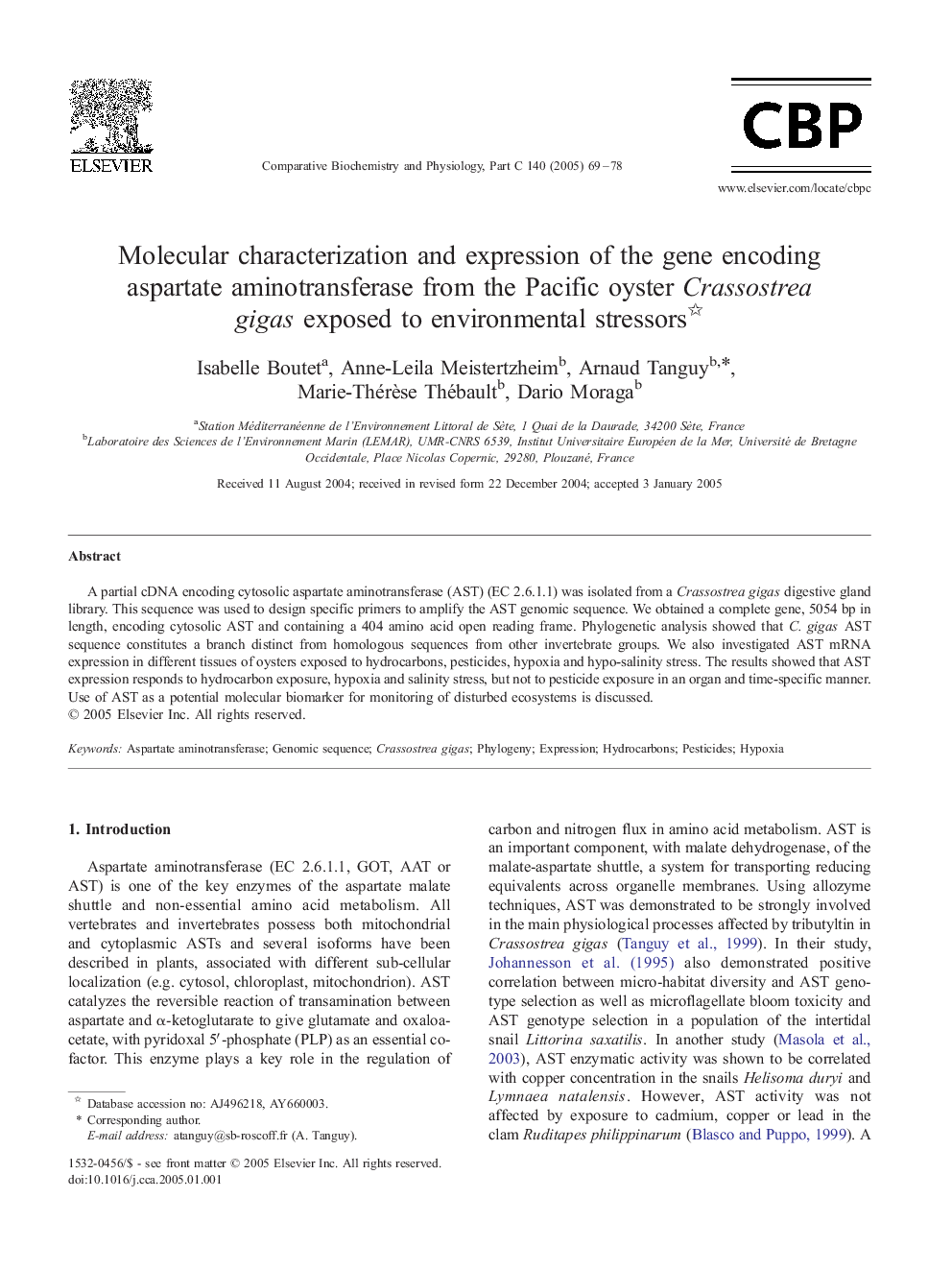| Article ID | Journal | Published Year | Pages | File Type |
|---|---|---|---|---|
| 10821826 | Comparative Biochemistry and Physiology Part C: Toxicology & Pharmacology | 2005 | 10 Pages |
Abstract
A partial cDNA encoding cytosolic aspartate aminotransferase (AST) (EC 2.6.1.1) was isolated from a Crassostrea gigas digestive gland library. This sequence was used to design specific primers to amplify the AST genomic sequence. We obtained a complete gene, 5054 bp in length, encoding cytosolic AST and containing a 404 amino acid open reading frame. Phylogenetic analysis showed that C. gigas AST sequence constitutes a branch distinct from homologous sequences from other invertebrate groups. We also investigated AST mRNA expression in different tissues of oysters exposed to hydrocarbons, pesticides, hypoxia and hypo-salinity stress. The results showed that AST expression responds to hydrocarbon exposure, hypoxia and salinity stress, but not to pesticide exposure in an organ and time-specific manner. Use of AST as a potential molecular biomarker for monitoring of disturbed ecosystems is discussed.
Keywords
Related Topics
Life Sciences
Biochemistry, Genetics and Molecular Biology
Biochemistry
Authors
Isabelle Boutet, Anne-Leila Meistertzheim, Arnaud Tanguy, Marie-Thérèse Thébault, Dario Moraga,
